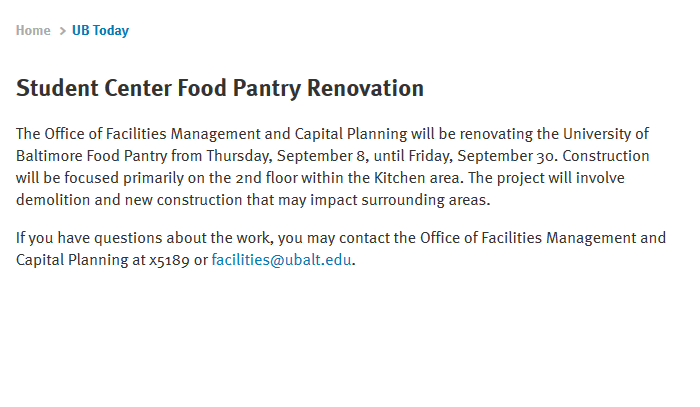Hi everyone! My name is Casey, and I am an undergraduate Psychology major at the University of Baltimore. I’m currently looking into the Psychology Master’s program here at UB to obtain my counseling certification and begin the long journey to being a certified, licensed Psychologist. I’ve got a long way to go, but I’m so excited about the opportunities this road will expose me to.
The reason I chose to major in Psychology is the same reason I chose to step outside my comfort zone and participate in LeaderShape: counseling and crises centers all over the country, in both private and public schools at all levels of education, are woefully and neglectfully under-served and understaffed. Mental health is such a hot-button issue in our country, but little is being done for it despite the attention it’s getting. Everyone wants to talk about it, but there’s no action.
When I was a teenager, struggling with hormones and school and weird teenager stuff, I was also struggling with anxiety and depression. And a significant portion of my friends and peers were, too. But there wasn’t anyone to address this problem. Parents brush the issue off as adolescent drama, school administrators aren’t qualified to handle a suicidal teen, and aren’t necessarily obligated to make parents understand those implications. The difference between my mental health issues (which at the time were undiagnosed) as a teenager, and the mental health issues that some of my friends faced, is that I lived through mine. And they did not. Using the same resources (or lack there of) that they were given, I was facing down my own mortality as I realized that if my life were in jeopardy because of my mental health issues, there was no one to save me.
As I got older I became more disillusioned with the concept of getting “help.” Who was there to help me? Why didn’t those people help my friends? Why didn’t anyone listen to them? Would anyone listen to me? As I struggled with these questions, more friends lost their lives. More peers. Colleagues. Even now I watch my little brother emotionally struggle his way through high school because the only support his “counselor” can offer him is: “Well, it could be worse.”
So, why is “worse” the only option? That’s what I want to change. My ultimate goal, my vision, is to ensure that youths, ages 13-25, have access to proper and adequate mental health care at every stage of education. Growing up is already so difficult; undiagnosed and untreated mental health problems spell disaster for kids all over this country. Being a part of this society that is so driven by advancing and being the best means that kids, who won’t even have a fully developed cerebral cortex by the time they have to decided where they want to go to college and what they want to do with their life, are being crushed before they have a chance to prove their worth. I want to see a world where a society that demands this much of children also offers them the resources they need just to live through the process. In this case, that resource is access to mental health care.
In regards to Baltimore, my end goal is to open a series of free walk-in clinics, where licensed counselors can offer assessment and referrals for short or long-term care for youths experiencing psychopathological disturbances. At the moment, to achieve that goal, I am expanding my network of Baltimore City based psychologists through our universities. We have an extremely dense concentration of higher education institutions here in Baltimore, and nearly all of those institutions have a Psychology program. That’s a massive resource to mine, and I intend to do just that.
